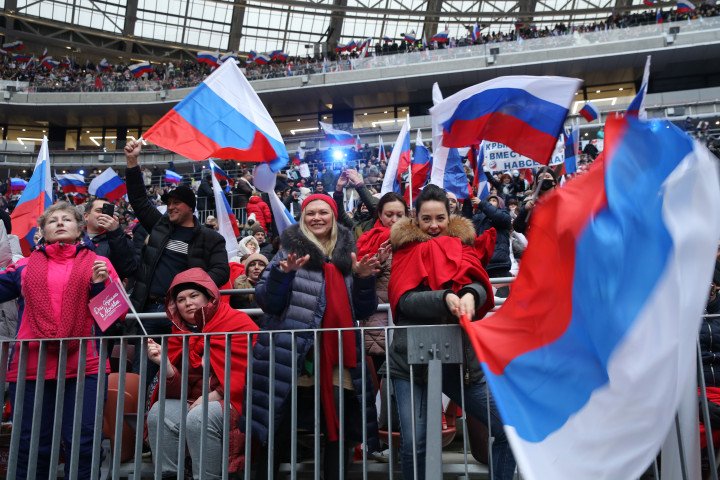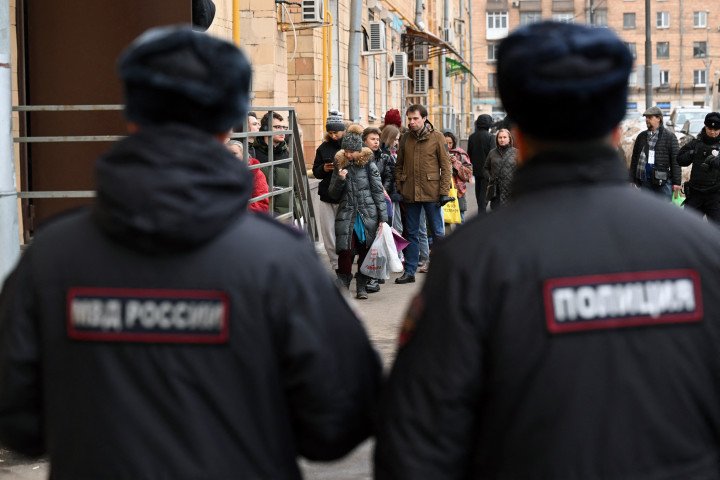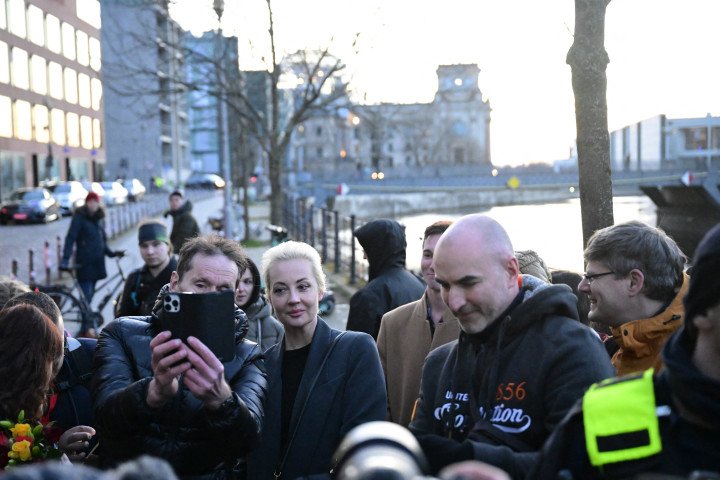- Category
- War in Ukraine
Not Only Putin's War. A Majority of Russians Keeps Supporting the War in Ukraine, Polls Show

Despite hopes for a shift in public opinion, polls show that the vast majority of Russians have been supporting the war in Ukraine since the full-scale invasion started—support that has remained stable.
The support for Russia’s war among the Russian population has remained stable over the past two years, a policy paper published on December 17 in the Atlantic Council shows.
The cross-study by Maria Snegovaya is damning: The majority of Russians support the war, most polls show.
War support has fluctuated between 70% and 75%, with about 20% of respondents consistently opposing the war, according to surveys by the Levada Center, Russian Public Opinion Research Center (VCIOM), the Public Opinion Foundation, and Russia Watchers.
According to polls by Russian Field and ExtremeScan, Russians’ support for the war has reportedly fluctuated between 60–70 % over the past two years, but the differences in numbers might be due to the framing of the question, the report states.
Such results undermine the common misconception that Russian leader Vladimir Putin and his circle are imposing their belligerent agenda on the population.
Putin’s approval rating increased by double digits after the start of the full-scale invasion, a “rally around the flag” effect previously observed in Moscow's past wars.

Pro-war majority: hawks and loyalists
53% of men “completely” or “rather” support the war, and 36% of women compose the pro-war groups.
Hardliners “hawks” make up 14% of the population on average, according to surveys.
They tend to be hardcore nationalists who believe that a ceasefire in Ukraine is unacceptable until Russia “destroys and eradicates fascism and Nazism,” one of the Kremlin’s key talking points for launching its genocidal war.
These respondents tend to reside in rural areas and rely on TV as their primary source of information. While usually less educated, they have higher income levels.
“Better-off respondents are more likely to support the war,” the paper says. “Because of the idiosyncrasy of the Russian middle class, which includes many members of the security services and state and public-sector employees, all of whom are more likely to take pro-Kremlin stances.”
At the same time, the Open Minds Institute states that the “loyalists”—the war supporters who express their opinions with less intensity—constitute 39-49%. The “uncertain,” who support the war but are not sure Russia is moving in the right direction, amount to 11-14%.
This group agrees “with the war in principle but in moderation,” according to the policy paper.
42% of respondents to a Levada poll have consistently supported the Russian invasion of Ukraine, albeit for pragmatic rather than ideological reasons.
This group reportedly claims that “Russia should ‘win anyways’ and ‘finish what it started,’” describing the war as “defensive, inevitable, or the result of the threat of NATO expansion.” Yet, individuals from this group tend to want the war to end soon.
This group tends to delegate foreign policy decisions to the Kremlin and “considers its duty to follow what the state considers morally correct” while sacralizing the “defensive” and “liberation” war against an enemy “attacking their homeland,” the report reads.

Weak opposition
War opposition in Russia has remained at about 19–20 % on average since the beginning of the full-scale invasion, according to the report.
Opponents tend to have lower income levels and consider the war could worsen their financial situation. Younger, they are more likely to reside in big cities and tend to get their information from the Internet, including YouTube, Telegram channels, or social networks.
Yet, the Russian youth tends to become more conformist and thus more pro-Kremlin and pro-war.
A vast majority of 61% of younger people in Levada polls still support the war, while 75–80% of people fifty-five and older support the Russian military’s invasion.
Since 2022, about half of Russians have consistently supported peace negotiations, but only with the condition that Russia retains its recent territorial gains in Ukraine.
Some pollsters have noticed a slight increase of 7–8% more people supporting peace talks, but the pattern is inconsistent across all studies.
Pro-Western liberals constitute less than half of this group, at only about 7% of the total sample.

Access to information
Contrary to a common misconception, the Russians do have access to other information sources than the TV’s Kremlin propaganda.
More than 85% of Russians have internet access, while social apps have nearly 60 million users in a country of over 140 million. YouTube and Telegram still exist, and VPNs circumvent the Kremlin’s censorship.
Yet, even online, Russians seek information closer to their views, such as patriotic military bloggers.
In 2022, TikTok posts uploaded with pro-war hashtags collected over 2 billion views, while posts promoting the infamous Wagner group collected one billion views.
Overall, Russians can access accurate information about the war in Ukraine.
Still, according to the report, they often avoid facts that challenge their beliefs by denying and refusing to believe them, calling the evidence “fake.”
Snegovaya writes that most criticisms over the polls’ reliability came from “exiled Russian opposition figures who have their own agenda, or from journalists and experts who do not have experience working with the polling data in their research.”
The belief that Russia could quickly shed its authoritarian legacies was naïve, according to Snegovaya, who insists that “one can generally trust Russian public opinion data, albeit with some reservations.”
The fact that most Russians embrace the war is not up for debate, according to her.

-35249c104385ca158fb62273fbd31476.jpg)

-554f0711f15a880af68b2550a739eee4.jpg)



-206008aed5f329e86c52788e3e423f23.jpg)